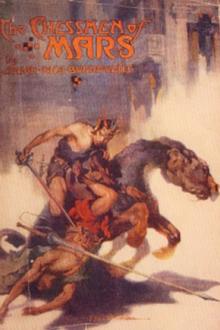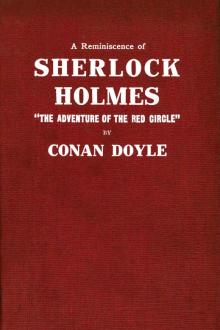
ed him in a remote sort of way. Not that the idea of telepathy itself was alien to him--after all, he was even more aware than the average citizen that research had been going on in that field for something over a quarter of a century, and that the research was even speeding up.But the cold fact that a telepathy-detecting device had been invented somehow shocked his sense of propriety, and his notions of privacy. It wasn't decent, that was all. There ought to be something sacred, he told

tions, thoughts, and emotions. But dreams, being familiar, are credible; it is admitted that people do dream; we reach the less credible as we advance to the less familiar. For, if we think for a moment, the alleged events of ghostdom--apparitions of all sorts--are precisely identical with the every-night phenomena of dreaming, except for the avowed element of sleep in dreams.In dreams, time and space are annihilated, and two severed lovers may be made happy. In dreams, amidst a grotesque

I certainly expected that you would do so. You did look up; and I was now assured that I had correctly followed your steps. But in that bitter tirade upon Chantilly, which appeared in yesterday's 'Musée,' the satirist, making some disgraceful allusions to the cobbler s change of name upon assuming the buskin, quoted a Latin line about which we have often conversed. I mean the linePerdidit antiquum litera sonum. I had told you that this was in reference to Orion, formerly written Urion; and,

l perfection--the effortlessharmony of faultless coordination. A scarf of silken gossamercrossing over one shoulder was wrapped about her body; her blackhair was piled high upon her head. With a wooden stick she tappedupon the bronze disc, lightly, and presently the summons wasanswered by a slave girl, who entered, smiling, to be greetedsimilarly by her mistress."Are my father's guests arriving?" asked the princess. "Yes, Tara of Helium, they come," replied the slave.

COUNTESS. Be thou blest, Bertram, and succeed thy father In manners, as in shape! thy blood and virtue Contend for empire in thee, and thy goodness Share with thy birthright! Love all, trust a few, Do wrong to none: be able for thine enemy Rather in power than use; and keep thy friend Under thy own life's key: be check'd for silence, But never tax'd for speech. What heaven more will, That thee may furnish and my prayers pluck down, Fall on thy head! Farewell.--My lord, 'Tis an unseason'd

the wife of the grantor is to sign, her name should follow thatof her husband.If one or both cannot write, the signature can be made in thisway: HisGeorge X Jones.Mark. Witness.............. In some states one or more witnesses are required to the signatureof the grantor; in others, witnesses are not necessary, exceptwhere a "mark" is made. An important part of a deed is the Acknowledgment. This is the actof acknowledging before a notary public, justice or other officialproperly

actice in ourneighborhood.""I know you did, sir," I replied. "But what was a poor travelingportrait-painter like my husband, who lives by taking likenessesfirst in one place and then in another, to do? Our bread dependedon his using his eyes, at the very time when you warned him tolet them have a rest." "Have you no other resources? No money but the money Mr. Kerbycan get by portrait-painting?" asked the doctor. "None," I answered, with a sinking at

"That he desired to conceal his handwriting.""But why? What can it matter to him that his landlady shouldhave a word of his writing? Still, it may be as you say. Then,again, why such laconic messages?" "I cannot imagine." "It opens a pleasing field for intelligent speculation. The wordsare written with a broad-pointed, violet-tinted pencil of a notunusual pattern. You will observe that the paper is torn away atthe side here after the printing was done, so that

er merely whetting your appetite. We wish you to get these seven principles well fixed in your mind, so that you may be able to understand the terms when we use them later on.3. Prana, or Vital Force. We have said something of Prana in our little book, "The Science of Breath," which many of you have read. As we said in that book, Prana is universal energy, but in our consideration of it we will confine ourselves to that manifestation of Prana which we call vital force. This vital

iews. For one thing, he was really close to the actual phenomena--visible and tangible--that he speculated so grotesquely about; and for another thing, he was amazingly willing to leave his conclusions in a tenative state like a true man of science. He had no personal preferences to advance, and was always guided by what he took to be solid evidence. Of course I began by considering him mistaken, but gave him credit for being intelligently mistaken; and at no time did I emulate some of his

ed him in a remote sort of way. Not that the idea of telepathy itself was alien to him--after all, he was even more aware than the average citizen that research had been going on in that field for something over a quarter of a century, and that the research was even speeding up.But the cold fact that a telepathy-detecting device had been invented somehow shocked his sense of propriety, and his notions of privacy. It wasn't decent, that was all. There ought to be something sacred, he told

tions, thoughts, and emotions. But dreams, being familiar, are credible; it is admitted that people do dream; we reach the less credible as we advance to the less familiar. For, if we think for a moment, the alleged events of ghostdom--apparitions of all sorts--are precisely identical with the every-night phenomena of dreaming, except for the avowed element of sleep in dreams.In dreams, time and space are annihilated, and two severed lovers may be made happy. In dreams, amidst a grotesque

I certainly expected that you would do so. You did look up; and I was now assured that I had correctly followed your steps. But in that bitter tirade upon Chantilly, which appeared in yesterday's 'Musée,' the satirist, making some disgraceful allusions to the cobbler s change of name upon assuming the buskin, quoted a Latin line about which we have often conversed. I mean the linePerdidit antiquum litera sonum. I had told you that this was in reference to Orion, formerly written Urion; and,

l perfection--the effortlessharmony of faultless coordination. A scarf of silken gossamercrossing over one shoulder was wrapped about her body; her blackhair was piled high upon her head. With a wooden stick she tappedupon the bronze disc, lightly, and presently the summons wasanswered by a slave girl, who entered, smiling, to be greetedsimilarly by her mistress."Are my father's guests arriving?" asked the princess. "Yes, Tara of Helium, they come," replied the slave.

COUNTESS. Be thou blest, Bertram, and succeed thy father In manners, as in shape! thy blood and virtue Contend for empire in thee, and thy goodness Share with thy birthright! Love all, trust a few, Do wrong to none: be able for thine enemy Rather in power than use; and keep thy friend Under thy own life's key: be check'd for silence, But never tax'd for speech. What heaven more will, That thee may furnish and my prayers pluck down, Fall on thy head! Farewell.--My lord, 'Tis an unseason'd

the wife of the grantor is to sign, her name should follow thatof her husband.If one or both cannot write, the signature can be made in thisway: HisGeorge X Jones.Mark. Witness.............. In some states one or more witnesses are required to the signatureof the grantor; in others, witnesses are not necessary, exceptwhere a "mark" is made. An important part of a deed is the Acknowledgment. This is the actof acknowledging before a notary public, justice or other officialproperly

actice in ourneighborhood.""I know you did, sir," I replied. "But what was a poor travelingportrait-painter like my husband, who lives by taking likenessesfirst in one place and then in another, to do? Our bread dependedon his using his eyes, at the very time when you warned him tolet them have a rest." "Have you no other resources? No money but the money Mr. Kerbycan get by portrait-painting?" asked the doctor. "None," I answered, with a sinking at

"That he desired to conceal his handwriting.""But why? What can it matter to him that his landlady shouldhave a word of his writing? Still, it may be as you say. Then,again, why such laconic messages?" "I cannot imagine." "It opens a pleasing field for intelligent speculation. The wordsare written with a broad-pointed, violet-tinted pencil of a notunusual pattern. You will observe that the paper is torn away atthe side here after the printing was done, so that

er merely whetting your appetite. We wish you to get these seven principles well fixed in your mind, so that you may be able to understand the terms when we use them later on.3. Prana, or Vital Force. We have said something of Prana in our little book, "The Science of Breath," which many of you have read. As we said in that book, Prana is universal energy, but in our consideration of it we will confine ourselves to that manifestation of Prana which we call vital force. This vital

iews. For one thing, he was really close to the actual phenomena--visible and tangible--that he speculated so grotesquely about; and for another thing, he was amazingly willing to leave his conclusions in a tenative state like a true man of science. He had no personal preferences to advance, and was always guided by what he took to be solid evidence. Of course I began by considering him mistaken, but gave him credit for being intelligently mistaken; and at no time did I emulate some of his